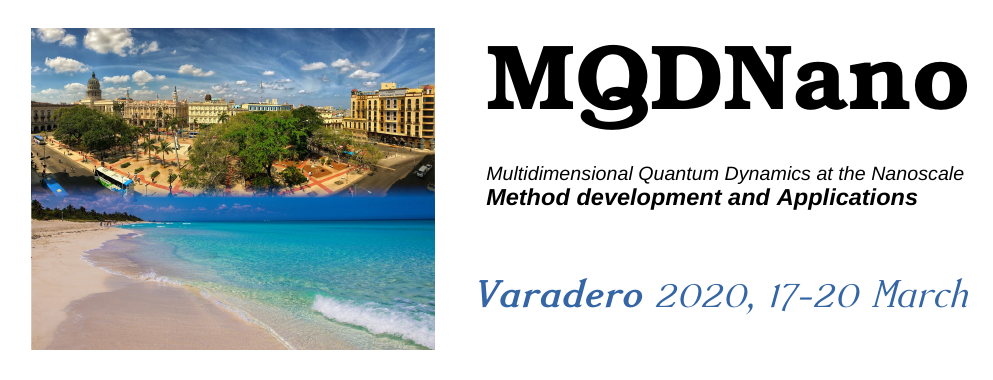
|
|
|
Additional information- Traveling from International Airport José Martí to Havana city We recommend you to travel by taxi. The distance from the airport to Vedado, for instance is about 19 km (roughly half an hour by taxi). The standard cost is about 30 CUC (Cuban convertible pesos), or approximately 30 EUR. We advise you to always agree the fare first. - Visa Although it exists the academic visa, it is not commonly used for attending a workshop. Indeed, up to our knowledge people has used the tourist visa (or "tourist card") for that purpose. The reason is that it takes longer to get an academic visa, and it involves more paperwork. Also, it is allowed to enter the country with a tourist visa and changed into an academic visa within one month, so it is not worth to apply for the second one for just a few days. So, you will require a tourist visa, known as a tourist card, that allows the holder to stay in Cuba for 30 days and is valid for a single entry. You must also have a passport valid for two months beyond the length of your proposed duration of stay, as well as proof of a confirmed return flight and booked accommodation. You can purchase the visa card online. - Travel health insurance Upon entry into Cuba, you will need proof of travel health insurance. The travel medical insurance plan must include coverage for medical evacuation by air, medical emergencies, and repatriation. - Currency . It is probably best to get some local currency (CUCs) before you leave the airport (to pay the taxi, for instance). In Terminal 3, there is an ATM on the upper level, above the arrivals hall, in the departure hall. A CADECA currency exchange office is located on the ground floor. Bear in mind that the CUC is pegged to the US Dollar (at 1:1) so a stronger US Dollar means a stronger CUC (and hence less CUCs for your Euros). . Visa, Euro and Master cards are widely accepted. There is normally a commission for using a credit card at around 3% for both purchases and cash withdrawals. Mastercard is not accepted at ATMs in Cuba, although you can use your card to withdraw money from a bank or a Cadeca. - Water As a general rule, you should avoid tap water in Cuba and stick to drinking bottled water. - Plug sockets In Cuba the power plugs and sockets are of type A, B and C. In the hotels the most frequent are type B and C. In the "casas particulares" you will usually find type A sockets. The standard voltage is 110 / 220 V and the standard frequency is 60 Hz. Although the power supply in Cuba is mainly 110 volts, most of the modern hotels have dual voltage with all the sockets in the room being 220 volts. - Internet and cell phones . Most cell phones work in Cuba, but they will be expensive to use. Cuba uses the GSM network and rents cell phone satellite services from Italy. You can have full mobile Internet access provided by Cuba's telecommunications company, ETECSA, at 3G and 4G/LTE speeds (the later only in Havana). It is possible to use WhatsApp in Cuba once you get connected to the wifi service. The wifi service will cost about 10 cents per megabyte, with packages ranging from 400 megabytes for 5 CUC (=5 USD) to 10 gigabytes for 45 CUC (=45 USD). . You can purchase a Cuba SIM card with data (expensive) or an ETECSA internet card (affordable), making use of the many WiFi hotspots around the country. ETECSA produces the pre-paid Nauta (WiFi) card which allows locals and visitors to log on. There are three ways to purchase: from official ETECSA stores, from a hotel or airport, from post offices and kiosks. Once you buy your card with your passport, find a WiFi spot, scrape off and reveal your code, go to your WiFi log on settings on your phone, tablet or laptop and choose ETECSA WiFi option, type in your login username digits and password, enjoy the internet. ETECSA Logout: type 1.1.1.1 into the search bar, request to log off and click ‘cerrar sesión’ to save the remaining time of the card. . There is a new option designed for tourist in a short trip: cubacel - tur. Please check: |
| Online user: 26 | Privacy |

|
